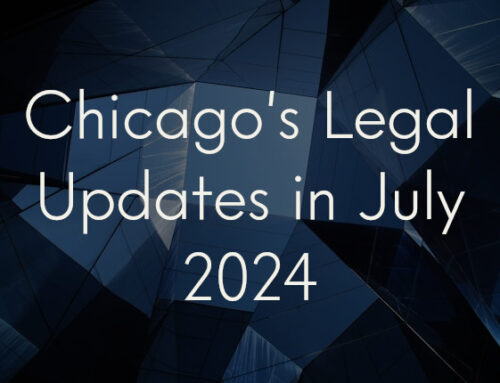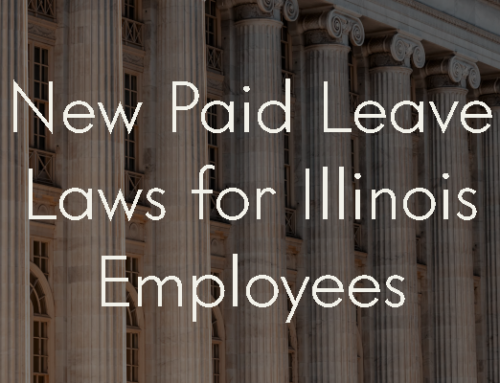UPDATE
On May 23rd, the Illinois Supreme Court filed its opinion in LMP Service, Inc. v. City of Chicago, ruling in the City’s favor and upholding the constitutionality of the provisions in question:
- A ban prohibiting food trucks from operating within 200 ft of a brick-and-mortar restaurant (challenged on the grounds that it unfairly favors brick-and-mortar restaurants)
- A requirement that food trucks install a GPS tracking device so the City can monitor their location and enforce the first provision (challenged on the grounds that it qualifies as a warrantless, unreasonable search, in violation of the right to due process)
Regarding the ‘200-Foot Rule’, the Court found that the restriction supported the City’s legitimate efforts to build economic stability in Chicago’s neighborhoods – a benefit conferred by physical establishments, not mobile food vendors.
The Court sustained the GPS requirement for a few reasons: the location data is necessary to enable City inspections; the data is not transmitted directly to the City; and, as the City has never requested location data, the provision does not diminish a food truck’s expectation of privacy.
You can read the full opinion here.
In the frigid depths of the Midwestern winter, culinary law is heating up. On January 24th, the Illinois Supreme Court decided to hear oral arguments about the constitutionality of Chicago’s restrictions on food trucks. The lawsuit (LMP Service, Inc. v. City of Chicago) was first brought in 2012 and has simmered in the courts in the years since.
Current Regulations:
The law, as it stands right now, prohibits food trucks from parking within 200 feet of a brick-and-mortar restaurant and requires them to carry a GPS device transmitting their location. These points form the crux of the case. Here’s the exact language of the contested restrictions, straight from the Municipal Code of Chicago:
- No operator of a mobile food vehicle shall park or stand such vehicle within 200 feet of any principal customer entrance to a restaurant which is located on the street level; provided, however, the restriction in this subsection shall not apply between 12 a.m. and 2 a.m. (CMO 7-38-115(f))
- Each mobile food vehicle shall be equipped with a permanently installed functioning Global-Positioning-System (GPS) device which sends real-time data to any service that has a publicly-accessible application programming interface (API). For purposes of enforcing this chapter, a rebuttable presumption shall be created that a mobile food vehicle is parked at places and times as shown in the data tracked from the vehicle’s GPS device. (CMO 7-38-115(l))
The Case Against:
Vendors contesting these restrictions claim a number of grievances: they unfairly restrict competition by only protecting established businesses (about 97% of downtown Chicago is out-of-bounds); many other states have ruled similar municipal initiatives unconstitutional; and the GPS tracking qualifies as an unlawful search. For a firsthand perspective, I recommend listening to WBEZ’s interview with Laura Pekarik, owner of Cupcakes for Courage and the plaintiff in the case.
The Case For:
The city maintains that these regulations are reasonable and balance a number of private interests with public benefits. Suzanne Loose, who represents Chicago in the case, said to The Illinois News Network that “The purpose is not to suppress competition, but to protect the many benefits that brick and mortars do bring to Chicago.”
The Circuit Court agreed with the city, and in 2017 the 1st District Appellate Court upheld the ruling of the Circuit Court. According to the Appellate Court’s opinion, the 200-foot restriction balances sidewalk congestion and fairly weighs the needs of food trucks and brick-and-mortar restaurants. And, because the city never requested GPS data from the mandated transponders, the Court reasoned that no search was ever conducted. The Court stated that the GPS requirement is merely a way to require thorough record-keeping, for use should the 200-foot rule be breached.
What’s Next?
As of now, the Supreme Court has yet to schedule oral argument regarding the issue, but a ruling is expected later in 2019. We’ll be watching this closely.
While this news may seem an ill omen for the future of food trucks in Chicago, what with lower courts siding with the city, it also casts a ray of hope! After years of litigation, mobile food vendors may finally be freed from these onerous regulations – the perfect time to get in the food truck game! If you’re interested in starting one, we wrote a whole article for our Education Hub about the licensing process.
As this case goes to show, there’s a Chicago-sized portion of legal complexity associated with the food truck business. Contact us today before digging in.





